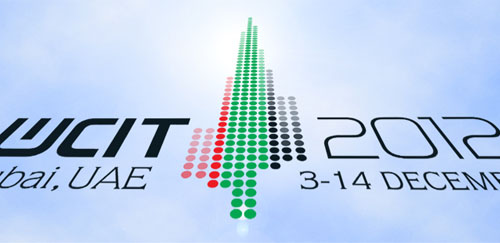Intense yet positive debate during the World Conference on International Telecommunications: An Interview with Andres Piazza, LACNIC Delegate to Dubai.
28/12/2012


Defending a free Internet and its multi-stakeholder governance model was the fundamental goal of the various international stakeholders and Internet organizations during the two weeks of debates in Dubai aimed at preventing the inclusion of regulatory provisions affecting information and communication technologies (ICTs) in the new treaty on international telecommunications agreed by International Telecommunications Union Member States.
Andres Piazza, External Relations Officer at LACNIC, attended this meeting where, along with other delegates from the ICT community, he actively sought to preserve the non-regulated nature of the Internet against the attempts of various governments to impose regulations and restrictions on Internet utilization.
In the end, after two weeks of intense debates on the nature of the Internet and the possibility of content regulation, the Dubai summit produced a text that does not mention the Internet.
– How open was the World Conference on International Telecommunications held in Dubai (United Arab Emirates)?
Openness and transparency have been in the spotlight. First of all, there is a major the contrast between a multilateral conference where ITU Member States discuss changes to a treaty, and the debates and policy development processes as implemented by the different organizations that make up the Internet community (ICANN, RIRs, IETF, etc.) in terms of information availability, transparency and the possibility for all interested parties to participate.
Many stakeholders, among them the Internet community, expressed their concerns regarding the transparency of the proceedings. This in turn generated an interesting reaction on the part of the ITU and, in the end, the World Conference on International Telecommunications featured a level of openness without precedent for an international treaty. The plenary sessions, as well as those of Committee 5 (the most important committee, where proposals were discussed), were webcast with real-time transcription and filing of the minutes; documents were also published. In addition, daily press conferences were held – also an unusual practice (I was interviewed myself, the interview is available on the ITU’s website, in reply to question 3). http://www.youtube.com/watch?v=G9pVmnNOD18&list=PLpoIPNlF8P2MKQnXhA7y8w2G6rz-sEnmp&index=1
However, these improvements were not enough and the transparency of the conference was not up to expectations. During the second week of discussions, some informal meetings were held which were key for evolving the text that was to be negotiated, and these were not as open as we would have wished. The most intense negotiations over proposals took place during these meetings, which gave rise to expressions of concern on the part of the NRO and the Internet Society (see references).
http://www.nro.net/news/nro-observations-on-wcit-12-process
http://www.internetsociety.org/news/internet-society-disappointed-over-fundamental-divides-world-conference-international
– Which Internet Governance topics were discussed the most during the meeting?
– Both during the conference’s opening remarks as well as during negotiations, public expressions from the community, ITU Member States and the Conference’s President stressed that the International Telecommunications Regulations do not and should not deal with the Internet and that the World Conference was not about the Internet.
However, the Internet was debated many times during the conference. Governance, changes to the definition of International Telecommunications, critical resource management, cybersecurity regulations, spam, creation of termination and transit fees, establishing a charging scheme based on a “sender pays” model and quality of service (as opposed to the current best effort model) were among the topics that were discussed.
However, none of these issues ended up being included in the adopted Regulations, which do not modify the definition of Telecommunications or mention the Internet in its text.
– Is it necessary to create new Internet-related supranational bodies or organizations?
– The concept of supranationalism assumes that States explicitly transfer sovereignty on a particular issue. The Internet and its Governance are not managed by a sovereign or supranational body. The current governance model guarantees Internet openness and freedom; therefore, creating new institutions or structures to perform these functions is not warranted at this point.
Fortunately, all proposals made with this intention were discarded during the negotiations on the International Telecommunications Regulations. Member States who brought these interests to the Conference had to settle for a non-binding WCIT Resolution expressing the intention to continue discussing this matter.
– What is your organization’s opinion about this meeting?
– The conference was an interesting experience, as exchanging information, opinions and points of view with government entities of our region, of other regions, with international bodies and other stakeholders was quite enriching. As I mentioned before, it is important to highlight both the progress made in terms of openness as well as those aspects that were not up to expectations.
Lacnic values the role of the region’s governments, their commitment to Internet development, its openness and freedom during the conference, regardless of their sovereign decisions on whether to adhere or not to the International Telecommunications Regulations resulting from WCIT12. Our organization continues to be available for the various national administrations.
Lacnic’s thoughts on the process: http://www.lacnic.net/en/web/anuncios/2012-wcit-reflexiones